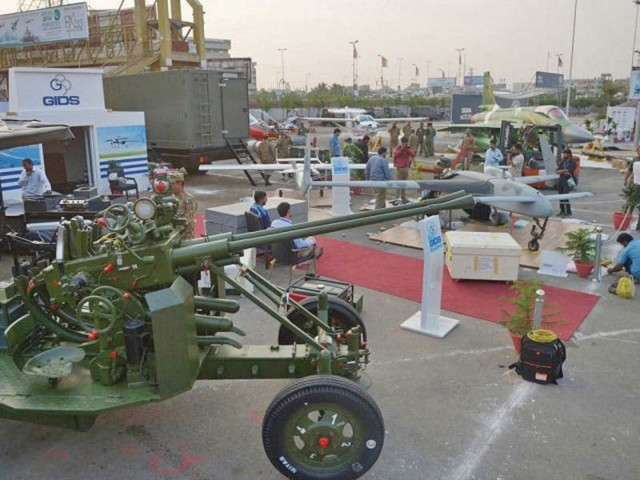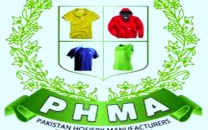Private sector must have role in production of defence goods
It will lead to competition, better quality goods and higher exports

Highly capable marketing professionals are in abundance and the private sector has access to potential buyers and markets of defence products. PHOTO: AFP
Competition Commission of Pakistan (CCP) Chairperson Vadiyya Khalil spoke at a seminar organised by the Khyber-Pakhtunkhwa Chamber of Commerce and Industry last week and said competition law enhances economic efficiency and creates a level playing field.
Her argument was that the law was meant to create the best possible conditions for consumers, investors and innovative entrepreneurs while the main objective is to enhance economic efficiency and create a level playing field.
Pakistan producing state of the art defence products: Mamnoon Hussain
Enforcement of competition law is a must for economic growth, she said, adding “the Competition Act 2010 is pro-competition, pro-consumer protection, pro-growth and therefore is pro-business. The law protects you, the businesses, from any anti-competitive or deceptive behaviour of other entities or competitors.”
Situation on the ground, however, is altogether different for the private sector. There are many areas where private investors complain of monopolies in businesses. Defence hardware and software production is one such area.
The Defence Export Promotion Organisation (DEPO) held a seminar on public-private partnership last week to discuss the opening of the area of defence production and exports for the private sector.
But no terms of references (ToRs) were offered to the participants, which were not associated with DEPO, for engagement in production and export. No private sector businessman of the country engaged in the same business was invited to the event.
‘JF-17 thunder fighter has capability to compete with any modern fighter jet’
Though a couple of Turkish businessmen were present, they too sought the ToRs. The only participant from Pakistan was Almas Hyder, Senior Vice Chairman of the Lahore Chamber of Commerce and Industry.
Poor beginning
Speaking to The Express Tribune about the seminar, Hyder said, “Efforts to invite the private sector to this field were only rudimentary. Unpreparedness on the part of organisers was evident; it was the beginning and it should not have been that poor. Now it is up to the private actors to determine how much space they (the monopolist state actors) allow them in business.”
The CEO of a company, which deals with the Ministry of Defence Production and is the largest supplier of equipment, accessories, kits and material, said “the monopoly of the state organisation leaves this sector in critical need of capacity for acquiring advanced technology and increasing exports.”
He added the private sector had a bitter experience of dealing with the ministry’s branches as they withheld payments while over-pricing of products was made possible in connivance with the private actors. “This is a monopoly that acts against the state exchequer,” he remarked.
The monopoly of the state in defence production and exports has restricted the development of the sector, which has never been exposed to competition. The defunct monopoly control authority had no history of challenging this monopoly.
An expert in the engineering sector, who gatecrashed into the seminar, had something to say: “A key feature of the seminar was low quality of products.”
According to the expert, marketing results are best achieved by private actors who are in a position to hire best professionals and are better aware of market forces. But they are kept out of business. Highly capable marketing professionals are in abundance and the private sector has access to potential buyers and markets of defence products.
He pointed out that the manufacturer and end-user/buyer in this case were actually one organisation with no competitor. “It is impossible to achieve economical and quality production in such an environment.” The absence of significant export orders is a proof of the lack of competition.
Who needs whom?
A Turkish delegate at the seminar remarked, “it is important to know who needs whom – the Ministry of Defence Production needs the private sector or the private sector needs the ministry.”
Pakistan to enhance defence equipment production, tap global market
Elaborating how the model of engaging the private sector in defence production worked in Turkey, he said the sector operated in coordination with various chambers of commerce and industry and there existed clusters for receiving input for initiating a project.
The writer has worked with major newspapers and specialises in analysis of public finance and geo-economics of terrorism
Published in The Express Tribune, December 14th, 2015.
Like Business on Facebook, follow @TribuneBiz on Twitter to stay informed and join in the conversation.



















COMMENTS
Comments are moderated and generally will be posted if they are on-topic and not abusive.
For more information, please see our Comments FAQ